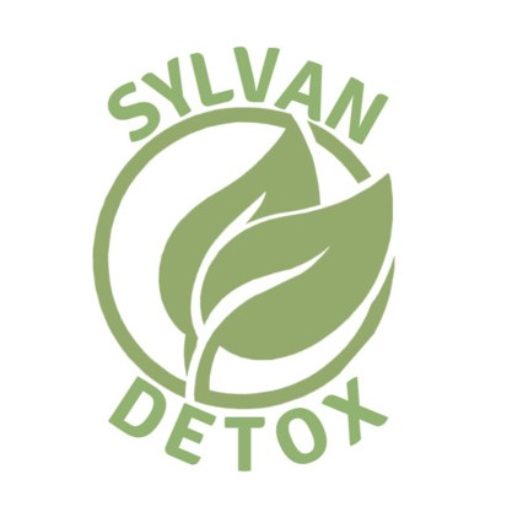What is Good Mental Health?
Good mental health can be defined as the ability to handle daily stress and accomplish personal goals. It is the way you feel on the inside, both in the way you think and how you feel emotionally. Having good mental health is as important to your well-being as having good physical health because it affects your daily life, and your ability to work, build relationships, look after yourself, and feel at peace. Poor mental health can affect your motivation and energy levels, cause you to feel sad, hopeless, fearful, or angry, and for those who are working to overcome a substance use disorder, poor mental health can be a trigger that results in a relapse if that person chooses to self-medicate with drugs or alcohol. For this reason, taking care of yourself mentally is extremely important in addiction recovery.
If you or a loved one is suffering from any form of addiction or abuse, please call Sylvan Detox at (818) 308-3099.
Life After Drug and Alcohol Rehab
After you detox your body, regain control over your mental illness and emotional health, learn new healthy and productive behaviors, and find ways to heal underlying trauma and pain in rehab, there will come a time when you are ready to go back out into the world. The coping skills you have gained from rehab are there to help you build a healthy and fulfilling life after rehab, but there will be challenges and bumps in the road to recovery, with many people relapsing.
Recovery is a lifelong journey, and thorough aftercare planning is the best way to ensure you stay away from drugs and alcohol, as is taking care of your mental health in recovery. Attending support groups, creating a healthy exercise plan, committing to your recovery goals, understanding the severity of your condition, identifying potential barriers to your success, and creating a realistic self-management plan are all critical factors in staying sober long-term.
How To Take Care of Your Mental Health in Recovery
Mental health is one of the most important aspects in a person’s recovery from their addiction to drugs and alcohol. Some of the ways you can take care of yourself include:
- Take care of your body through personal hygiene, self-care routines and exercise routines
- Making sure you get enough sleep
- Fostering healthy relationships with loved ones and friends, with good communication, boundaries, and encouragement
- Finding new sober friends and new sober activities, and starting to do healthy things that you love to do, like artistic hobbies, hiking, cooking, or spending time with animals
- Being of service to others who are in recovery in your community by becoming a sponsor, speaking up in a group, or volunteering for a helpline service
- Using healthy stress-reduction techniques as needed, including breathwork or meditation practices
- Ensuring you are living in a safe, stable, and supportive environment, moving into a sober living home if necessary
- Eliminating unnecessary triggers and temptation by staying away from old friends, hangouts, and places where drugs and alcohol may be found
- Finding moments throughout the day to take a breath, do something positive, and boost your mood
- Continuing to speak with a therapist or counselor regularly, either in person or via an online platform
- Ensuring you keep all your follow-up appointments with your doctors, therapists, case workers, and addiction specialists as this will not only keep you supported and accountable, but will also eliminate stress as you know you are doing what is best as you work to achieve your sobriety goal
- Going to support groups on a regular basis to stay on track and know that you are not alone when times are tough
Support Groups for Addictions
There are different types of support groups for substance use disorders available. You may find that you prefer one over the other, or you may choose to utilize a combination of some or all of the following groups to get as much support as possible. Some of the options you may have in your area include:
- 12-step groups like Alcoholics Anonymous or Narcotics Anonymous
- SMART recovery groups
- Alumni groups
- Sober living homes
- CBT or other group therapy sessions
Attending formal groups, meetings, and sessions focusing on addiction recovery is beneficial in ways that chatting to your friends may not be. You will be speaking with people who are working through similar issues, learning new strategies, and gaining professional insight into situations or problems that may not occur to the layperson.
Recovery Resources at Sylvan Detox
Sylvan detox center is a luxury inpatient rehab facility that is located in the San Fernando Valley in California. We provide residential detox programs and inpatient rehabilitation plans that are individualized to best suit each patient’s unique needs. Our therapists, doctors, nurses, holistic treatment providers, and other addiction specialists on staff are all experienced, with credentials and knowledge in their field. We are certified by the Joint Commission, so you can count on us to provide safe, effective care as you work toward your recovery, including therapies and treatments and services like:
- A full medical and psychiatric evaluation when you first arrive to determine the best methods of treatment for you
- A 24-hour full-time nursing staff with an on-call doctor day and night
- Prescription medications will help you deal with any anxiety, discomfort, restlessness, cravings, or other withdrawal symptoms, keeping you comfortable and safe as your body removes the toxins from your system
- Individual therapy, meeting with your certified therapist at least once a day
- Medication-assisted treatment plans if needed for serious addictions including opioid addiction, alcohol addiction, and benzodiazepine addiction
- Behavioral health care (cognitive behavioral therapy, cognitive restructuring groups, dialectical behavioral therapy)
- 40 to 47 hours per week of group therapy
- Family therapy programs
- Interpersonal psychotherapy
- A nutritional health and fitness program with a focus on strength-building, education, and health
- Creative healing programs and other alternative methods
- Anger management groups
Some of the programs we offer in our inpatient rehab program can help you as you start your life after rehab as a sober individual, including:
- Life skills programs with practice in goal-setting and obtaining
- Denial management groups and relapse prevention training programming
- Dual diagnosis treatments for people who are living with mental illness, PTSD, or mental health disorders like schizophrenia, anxiety, depression, bipolar disorder, mood disorders, personality disorders, etc.
- Case management services to ensure you are set up for success before you leave the walls of our treatment center
Addiction is not simply a physical and chemical issue, and at Sylvan Detox, we believe that treating the whole person is the best way to achieve long-term recovery. For this reason, we offer several holistic therapies that allow you to access deeper parts of yourself and strengthen your mind-body connection. These include yoga, sound therapy, massage, breathwork, saltwater therapy, meditation, and spirituality.
You can trust our team to maintain your confidentiality and security as you stay with us in your comfortable room, with luxury mattresses and plush comforters, housekeeping services, meals cooked by a private chef, 24-hour security, and personalized attention and treatment plans. Once you have completed your rehab program with us, we can connect you to outpatient rehab centers, online programs, 12-step groups, and other support systems in your area for long-term support and life-long connections to a sober community. Please contact our team today to learn more about our mental health and addiction treatments. We are accepting patients now.

